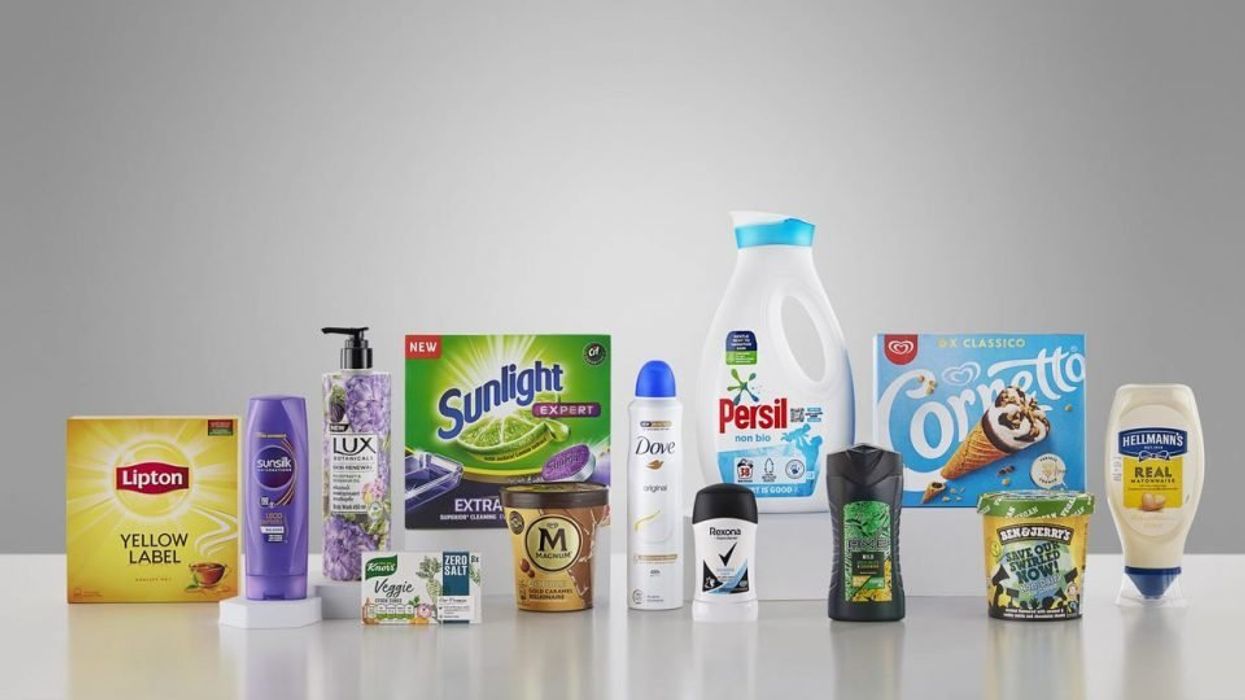Operations
04 April 2023
Unilever goes cloud-only with completion of Microsoft migration
After an 18-month transformation, the consumer goods company is now using Azure across operations.

Unilever has more than 400 brands. (Courtesy photo)
After an 18-month transformation, the consumer goods company is now using Azure across operations.

Unilever has more than 400 brands. (Courtesy photo)
Unilever is now in the cloud.
The news: Unilever, Accenture and Microsoft completed a cloud migration that sees the consumer goods company become a cloud-ony enterprise. Unilever is now using Microsoft’s Azure as its primary cloud platform, and the company said it will provide additional computing power to transform operations.
What went into the migration? Microsoft, Accenture and joint venture Avanade worked over 18 months with Unilever, which has more than 400 brands used by 3.4 billion people. The companies said it was “one of the largest and most complex cloud migrations in the consumer goods industry.”
What does the transition mean for Unilever? The consumer goods company will be able to speed up project launches, and make improvements both to customer service and operational efficiency. It will also assist in sustainability efforts to curb carbon emissions.
The companies outlined the following benefits that the migration will open up:
Key quote from Steve McCrystal, Unilever Chief Enterprise & Technology Officer: “Unilever is a truly data-powered organization. We’re using advanced analytics to make better-informed decisions quicker than ever before. Working with Accenture and Microsoft on this global transformation project, we can respond to ever-changing consumer needs faster, allocate our resources more effectively to focus on what drives growth, and bring services and products to the market faster.”
CPGs are tech companies, too: Say “digital” at a consumer goods company, and that could detail the priorities being set across many different operations, from manufacturing to customer service to marketing. In each area, companies are processing large amounts of data that can be harnessed to make improvements, and applying innovative approaches that create more efficiency to increase profitability. To power all of this change, companies have an increasing need for powerful digital infrastructure that will provide stability, while also offering the flexibility to keep testing and implementing new technologies and methodologies as they arise. This is commonly understood at tech companies, which have embraced the cloud as a bedrock of internet-enabled business growth. Unilever's transition to cloud-only shows that enhancing digital capabilities is just as important to companies in the business of physical goods.
Campbell Soup Company CEO Mark Clouse offered thoughts on messaging amid inflationary shifts in consumer behavior.
After months of elevated inflation and interest rate hikes that have the potential to cool demand, consumers are showing more signs of shifting behavior.
It’s showing up in retail sales data, but there’s also evidence in the observations of the brands responsible for grocery store staples.
The latest example came this week from Campbell Soup Company. CEO Mark Clouse told analysts that the consumer continues to be “resilient” despite continued price increases on food, but found that “consumers are beginning to feel that pressure” as time goes on.
This shows up in the categories they are buying. Overall, Clouse said Campbell sees a shift toward shelf-stable items, and away from more expensive prepared foods.
There is also change in when they make purchases. People are buying more at the beginning of the month. That’s because they are stretching paychecks as long as possible.
These shifts change how the company is communicating with consumers.
Clouse said the changes in behavior are an opportunity to “focus on value within our messaging without necessarily having to chase pricing all the way down.”
“No question that it's important that we protect affordability and that we make that relevant in the categories that we're in," Clouse said. "But I also think there's a lot of ways to frame value in different ways, right?”
A meal cooked with condensed soup may be cheaper than picking up a frozen item or ordering out. Consumers just need a reminder. Even within Campbell’s own portfolio, the company can elevate brands that have more value now, even if they may not always get the limelight.
The open question is whether the shift in behavior will begin to show up in the results of the companies that have raised prices. Campbell’s overall net sales grew 5% for the quarter ended April 30, while gross profit margins held steady around 30%. But the category-level results were more uneven. U.S. soup sales declined 11%, though the company said that was owed to comparisons with the quarter when supply chains reopened a year ago and expressed confidence that the category is seeing a longer-term resurgence as more people cook at home following the pandemic. Snacks, which includes Goldfish and Pepperidge Farm, were up 12% And while net sales increased overall, the amount of products people are buying is declining. Volumes were down 7%.
These are trends happening across the grocery store. Campbell is continuing to compete. It is leading with iconic brands, and a host of different ways to consume them. It is following that up with innovation that makes the products stand out. Then, it is driving home messaging that shows consumers how to fit the products into their lives, and even their tightening spending plans.
Campbell Soup is more than 150 years old, and has seen plenty of difficult economic environments. It is also a different business today, and will continue to evolve. At the end of the day, continued execution is what’s required.
“If it's good food, people are going to buy it, especially if it's a great value,” Clouse said.